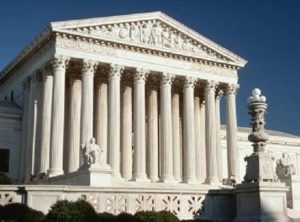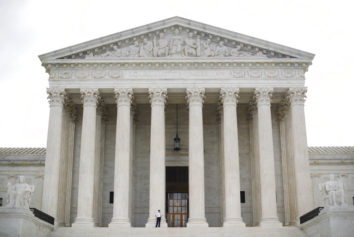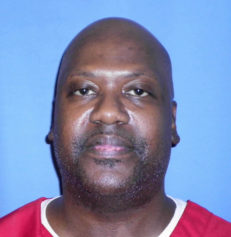The death of Supreme Court Justice Antonin Scalia, and the unfolding battle over the nomination of his replacement, is placed in its proper perspective with the latest Fourth Amendment case before the high court. In Utah v. Strieff, the Supreme Court will decide if police can use evidence — such as drugs or guns — they find during a stop, when the underlying stop itself is unconstitutional.
Under the amendment to the U.S. Constitution, there is a prohibition against unreasonable searches and seizures. However, the courts have been eating away at “fruit of the poisonous tree” doctrine — a part of the exclusionary rule which holds that evidence must be excluded from a trial if the police obtained it illegally — for quite some time. For the Black community — where innocent people are stopped and searched for no other reason than their skin, and the crime of “driving while Black” or “walking while Black” is punished in wholesale fashion — the stakes are high.
The case at hand involves a narcotics detective who in 2006 stopped a 46-year-old man leaving a suspected drug house. This detective had no reason to believe the man had done anything wrong, and the state admitted the stop was illegal. Nonetheless, the officer learned the man had an outstanding warrant, arrested him and found he was in possession of methamphetamine, as the Baltimore Sun reported.
Civil liberties advocates have expressed concerns that a ruling in favor of the police would provide an incentive to stop more people with shaky legal justifications, especially in so-called high-crime areas.
“Those incentives are already skewed the wrong way, and this is a significant reason for the problems that exist in policing not just in Baltimore but around the country,” said David Rocah, a senior staff attorney with the ACLU of Maryland. “Police have far more ability to intervene in our lives — even when we’re not engaged in actual criminal conduct — than I think most people suspect,” he added.
However, the pro-law enforcement approach maintains that the police are faced with a murky legal landscape and are trying to do their job in good faith, and the people who are committing the crime must be locked away. That so-called good-faith argument, as the Sun reported, has led to gradual expansion of the evidence prosecutors can use against a suspect. In 2011, the Supreme Court ruled that for evidence to be excluded in a trial, law enforcement would have to show “deliberate,” “reckless,” or “grossly negligent” disregard for the Fourth Amendment.
Oral arguments in Strieff were held in February. As Mark Joseph Stern wrote in Slate last month, the questioning of Justice Sonia Sotomayor during oral arguments demonstrated the issue at hand is not merely academic, but rather has real-world implications for people in poor communities of color such as Ferguson, Missouri.
“If we announce your rule,” Sotomayor asked Tyler Green, representing the state of Utah, “what stops us from becoming a police state and just having the police stand on the corner down here and stop every person, ask them for identification, put it through — and if a warrant comes up, searching them?”
Green responded that “an officer can never count on finding a warrant, so there is no incentive to make that stop.”
“If you have a town like Ferguson,” the justice replied, “where 80 percent of the residents have five minor traffic warrants out, there may be a very good incentive for just standing on the street corner in Ferguson and asking every citizen: Give me your ID. Let me see your name. And let me hope, because I have an 80 percent chance that you’re going to have a warrant.”
As Stern wrote, the courtroom audience reacted with shock at Sotomayor’s statement. Justice Elena Kagan hammered home her colleague’s point even further.
“If you’re policing a community where there is some significant percentage of people who have arrest warrants out on them,” Kagan said, “it really does increase your incentive to make that stop on the chance that there will be a warrant that will allow you to search and admit whatever evidence you gained in that search.”
In light of the predatory policing regime found in Ferguson and elsewhere — in which official policy encourages the daily harassment of Black people to fill the municipal coffers — the wrong decision in Strieff could mean a police free-for-all against Black people. If police can justify illegal seizures in most situations, what keeps them from stopping, arresting or detaining anyone — anyone who is Black — on the street at any time, and in any situation?



